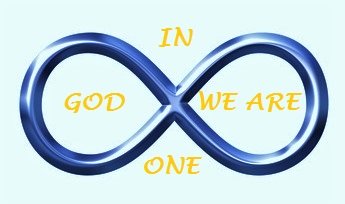How Authoritarian Governments and Exclusive Religious Belief Systems Share Common Ground
Throughout history, both authoritarian governments and exclusive religious belief systems have wielded immense power over people’s lives. At first glance, they might seem like two distinct forces—one political and the other spiritual—but in truth, they share much more in common than you might think. Both rely on similar mechanisms of control, foster an “us vs. them” mentality, and resist the individual’s right to question or explore.
Let’s take a closer look at how these systems overlap.
1. Centralized Power
Both authoritarian governments and exclusive religious systems operate by concentrating power in the hands of a few. In an authoritarian state, this power is typically vested in a leader or a small political elite. In an exclusive religious system, it’s often a priesthood, clergy, or set of religious authorities who claim the sole right to interpret divine will.
This structure demands unquestioning loyalty from the followers, who are taught to believe that the authority—whether secular or spiritual—knows best. Just as a dictator might declare, “I alone can fix it,” an exclusive religious leader might insist, “Our way is the only way.” The message is the same: trust in us, do not question, and we will protect you.
2. Control of Information
A key tool of both authoritarian governments and exclusive religious systems is the control of information. In an authoritarian regime, the state often restricts access to media, censors dissenting voices, and promotes propaganda. Similarly, in many exclusive religious systems, sacred texts are guarded or selectively interpreted, and alternative spiritual viewpoints are dismissed or outright banned.
This control keeps people in a closed system where they are less likely to encounter ideas that challenge the status quo. When people’s access to truth is limited, they remain dependent on those in power for guidance, wisdom, and salvation—whether that salvation is political or spiritual.
3. Fear as a Tool
Both systems thrive on fear—fear of punishment, fear of the unknown, and fear of outsiders. In an authoritarian government, dissent can be met with imprisonment, exile, or worse. Fear of retribution keeps people compliant and silent. Likewise, exclusive religious systems often use fear of eternal punishment or divine wrath to keep adherents in line. The threat of being cast out—whether from society or from spiritual salvation—can be a powerful motivator.
In both cases, fear stifles questioning and promotes a rigid adherence to dogma. The world is presented as black and white: obey or face dire consequences.
4. Division and Exclusion
Authoritarian governments frequently use nationalism or ideology to create an “us vs. them” mentality. Citizens are conditioned to see those who oppose the regime as enemies, unworthy of compassion or respect. Similarly, exclusive religious belief systems often promote the idea that their followers are the chosen ones, while those outside the faith are lost, damned, or inferior.
This kind of division breeds hostility, intolerance, and a lack of empathy for the "other." It keeps people trapped in a cycle of exclusion, where belonging is determined by conformity rather than individuality.
5. Resistance to Change
Both authoritarian governments and exclusive religious systems are deeply resistant to change. Their survival depends on maintaining the status quo, as change represents a threat to their authority. In authoritarian regimes, reforms are often met with violence or repression. Similarly, in exclusive religious systems, new ideas, interpretations, or reforms are seen as heresy or blasphemy.
By rejecting change, both systems stifle growth, innovation, and personal exploration. The individual is discouraged from evolving their own thoughts, beliefs, or actions outside the rigid framework established by those in power.
6. The Promise of Utopia
Perhaps one of the most striking similarities between authoritarian governments and exclusive religious systems is their shared promise of a utopia—if only you follow the rules. Authoritarian regimes often promise a perfect society, free from chaos and disorder, but only under their control. Similarly, many exclusive religious systems promise paradise in the afterlife, but only for those who adhere to their specific teachings.
This promise of a better future—whether on earth or in heaven—acts as a powerful motivator for compliance. It encourages people to endure hardship, oppression, and even violence, under the belief that they are on the right path.
Breaking Free: The Power of Inclusivity and Open Exploration
While authoritarian governments and exclusive religious systems thrive on control, fear, and division, there is an alternative way of being. Inclusivity and spiritual openness celebrate the diversity of human experience and the idea that no single path holds all the answers. Instead of suppressing questions, they encourage exploration. Instead of relying on fear, they promote love and compassion. Instead of creating divisions, they seek to build bridges between people of different beliefs and backgrounds.
In this view, spiritual truth is not a single, rigid doctrine, but a living, breathing experience that evolves as we do. Rather than submit to centralized control, individuals are empowered to seek their own connection to the divine, to question, to grow, and to create.
In both our political and spiritual lives, freedom comes when we recognize that power structures—be they authoritarian regimes or exclusive religious systems—are ultimately limiting. True empowerment happens when we embrace our individual and collective capacity to connect with the sacred, not through dogma or fear, but through love, curiosity, and shared humanity.
By reflecting on these parallels, we can see how important it is to remain vigilant against any system—secular or spiritual—that seeks to limit our ability to think, explore, and love freely.

